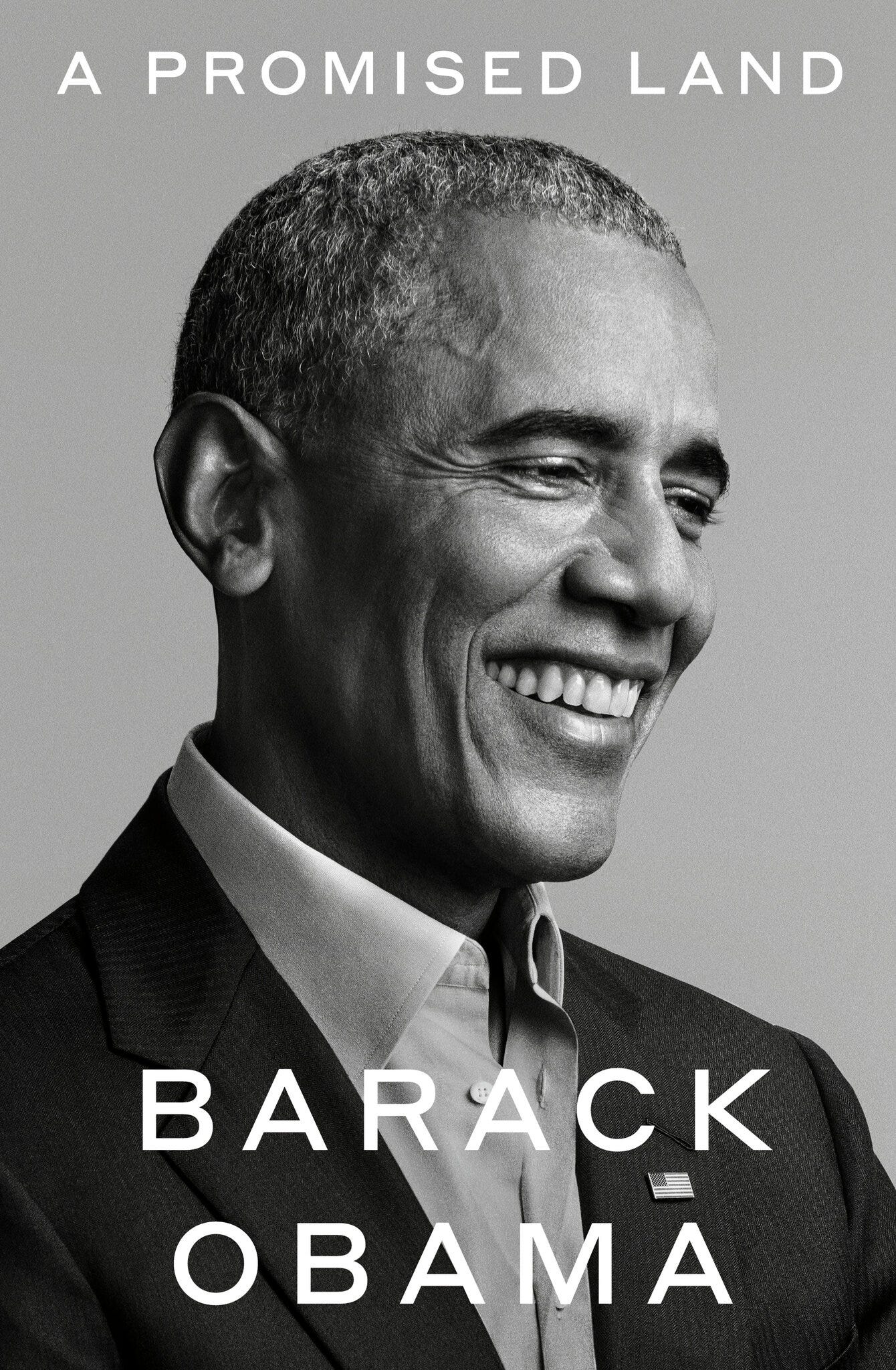The Patriotic Politics of Barack Obama
Notes from A Promised Land
Barack Obama’s compelling new memoir, A Promised Land, recounting his first presidential campaign and initial years in office, reads like a portrait of another time rather than an overview of political events from the not-so-distant past. Yet it is an important guide during this transitional moment, pointing the way towards a successful model of optimistic and patriotic politics that delivers for Americans—a model that Obama’s former partner and now incoming president, Joe Biden, knows firsthand and would be wise to emulate.
In A Promised Land, the policy debates are fierce but civil and resolved in some acceptable manner. The politics are rancorous but not militantly divided. Social media hasn’t fully infected democratic discourse with its lies, misinformation, and partisan hyperbole. The breakdown of political norms and active threats to democracy seem speculative, and a bit fanciful.
In this other era in 2009, the incoming president is greeted by throngs of people filled with pride and hope, and in turn, feels bad for the outgoing president when protesters hold up signs that read, INDICT BUSH and WAR CRIMINAL: “I felt quietly angry on his behalf. To protest a man in the final hour of his presidency seemed graceless and unnecessary,” as Obama describes his thoughts at the time.
President-elect Biden will get none of this good spirit from the current president and will have no time for wistful thinking about a golden past. American politics ten years after the conclusion of A Promised Land is dangerously broken and on the edge of implosion. It’s easy to blame Trump for this, and he certainly deserves a heap of scorn for our current predicament. But Obama in his reflective post-presidency mode knows that these disruptive trends pre-date Trump and lays out with analytical clarity the reality of our contemporary politics as a continuation of the country’s difficult attempts to define its national story and reconcile its values with its actions:
Perhaps most troubling of all, our democracy seems to be teetering on the brink of crisis—a crisis rooted in a fundamental contest between two opposing visions of what America is and what it should be; a crisis that has left the body politic divided, angry, and mistrustful, and has allowed for an ongoing breach of institutional norms, procedural safeguards, and the adherence to basic facts that both Republicans and Democrats once took for granted.
This contest is not new, of course…It’s a contest that’s been fought on the fields of Gettysburg and Appomattox but also in the halls of Congress, on a bridge in Selma, across the vineyards of California, and down the streets of New York—a contest fought by soldiers but more often by union organizers, suffragists, Pullman porters, student leaders, waves of immigrants, and LGBTQ activists, armed with nothing more than picket signs, pamphlets, or a pair of marching shoes. At the heart of this long-running battle is a simple question: Do we care to match the reality of America to its ideals? If so, do we really believe that our notions of self-government and individual freedom, equality of opportunity and equality before the law apply to everyone? Or are we instead committed, in practice if not in statute, to reserving those things for a privileged few?
Throughout the book Obama answers these questions honestly and self-critically but with a fierce belief in the American way and the ability of new generations to come together to renew and live up to our values: “What I can say for certain is that I’m not yet ready to abandon the possibility of America—not just for the sake of future generations of Americans but for all humankind.”
Obama’s patriotic view of America derives from the noble everyday actions of real people—decent public servants who do the people’s business without acclaim or grandstanding; stressed parents trying to keep their families afloat; workers and business people making the goods and services to help build and sustain the country; teachers educating our children; doctors, nurses, and other health professionals tending to our ailments; the men and women of the armed services, intelligence, and security agencies keeping us safe; and democratic protesters in the streets peacefully seeking full equality before the law for all people. He describes his actions on the post-crisis stimulus bill, financial regulation, the Affordable Care Act, and new models of international engagement and diplomacy as his best efforts to honor America’s values and these everyday Americans, even as he admits to coming up short at times.
As Biden prepares to take office in the midst of far different circumstances—with a democratic crisis on top of a pandemic and economic depression—he will surely need to develop his own version of Obama’s optimism and calm resolve. He will need to convey in his own words and deeds a belief that American patriots of all kinds can come together to address their differences, however difficult this process may be, to help advance the interests of all people and the nation as a whole.



